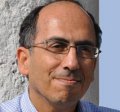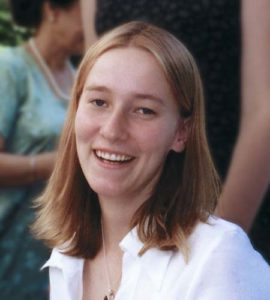Loneliness and Rachel
TRANSCEND MEMBERS, 17 Apr 2023
Mazin Qumsiyeh | Popular Resistance – TRANSCEND Media Service
10 Apr 2023 – On this day, Rachel Corrie’s Birthday, I reflected on her message which mentions loneliness (see message below). In my 65 years on this earth I talked to more than 120,000 people and I continue to find difficulty understanding connectivity and loneliness. The Beatles’ song “look at all the lonely people” plays in my head with every encounter. “We feel alone, and in this we are connected” said Leo Babauta. In other words, everyone at some level is lonely. While many are reluctant to admit it: we are lonely even when we are surrounded by friends, a lover, and family.As a biologist and at an intellectual level, I can understand that.
While we (Homo sapiens) evolved as a social species, our genome and chromosomes produce variations and characters that ensure uniqueness and individuality. This is both a blessing and a curse. Of course there are variations among people in behaviours and even in levels of feeling lonely. How different people react to their circumstances is also shaped by their background and upbringing. Being adored or being popular does not free you from loneliness. Stars and celebrities all feel loneliness and their mind may react to it in different ways generating behaviours ranging from self-destruction to charity.
How many stars went down the path of self destruction (Elvis Pressly, Marilyn Monroe etc.)? On the other end of the spectrum we find people like Danny Thomas (“make room for Daddy”) who went on to establish St Jude Children Research Hospital (where I worked in cancer research for two years meeting him three times before he died and old and happy man. My conversations with him as with Edward Said and many other “famous” people taught me that the most important aspect is to remain humble, to remain curious, to remain a student of life. This does not save you from loneliness. It does shed a new light on loneliness.
Recognizing that we humans have a biological need for acceptance and validation, our mind and attitude can deal with this and manage it by inward reflection. The Buddhist philosophy says to mediate and be still. Be like water which seeks the lowest places yet can erode and shape rocks. But even when we feel pain, our Buddhist friends tell us: embrace it and do not fight it. It is part of you. Many religions even encourage followers to endure pain (such as pain of hunger when fasting) by keeping an eye for the goal. But we do not have to believe in heaven and hell (carrots and sticks) to do what all know is right (and not do what is wrong).
Loneliness is not the same as being alone or solitude. Loneliness can be turned around. It has to do with choice. You can take time alone (whether because you choose or because you are forced ) to learn from books, reading poems, reflecting on what you want to do next, and even to forgive yourself (we all have our sins to atone for including the sin of wasting time vegetating and being sorrowful!). Getting out of depressive loneliness like any other negative emotion (fear, hate, guilt) requires practice and mind “management.”
The only minds we can actually (& thankfully) control are our own minds. When I visited Mumbai many years ago I saw thousands of people in abject poverty on the streets. One image still etched in my mind: a family, father, mother, two children sprawled at 11 PM semi naked on card boads on a street with a cell phone that they were watching and laughing (their own TV). The sound of that laughter never leaves me. It is the same laughter I heard from Children at a Palestinian refugee camp who invited me to share a meager meal with them (hummus, zait and zaatar and bread).
It was the jokes and laughter I heard from Palestinian prisoners sharing a cell with them (even though it was for one night, and I feld crushed to leave them). When I am tempted to feel sorry for myself, I need to remember those times and places where hope, kindness, love, and camaraderie was shown. Those memories sustain us when we are alone (by choice or not) and certainly can pull us out of the loneliness (even that which happens when we are surrounded by people). I end with the words of our friend Rachel Corrie who wrote in January 2003 (two months before she was murdered by the Israeli occupation army):
“We are all born and someday we’ll all die. Most likely to some degree alone. What if our aloneness isn’t a tragedy? What if our aloneness is what allows us to speak the truth without being afraid? What if our aloneness is what allows us to adventure – to experience the world as a dynamic presence – as a changeable, interactive thing? If I lived in Bosnia or Rwanda or who knows where else, needless death wouldn’t be a distant symbol to me, it wouldn’t be a metaphor, it would be a reality. And I have no right to this metaphor. But I use it to console myself. To give a fraction of meaning to something enormous and needless. This realization. This realization that I will live my life in this world where I have privileges. I can’t cool boiling waters in Russia. I can’t be Picasso. I can’t be Jesus. I can’t save the planet single-handedly. I can wash dishes….”
Rachel changed millions of minds and hearts… that is something to celebrate on her birthday (she would have been 44 today) …..
The rose that grew from concrete: Palestinian refugees in Jordan ‘green’ their camps to resist
American held by Israeli occupation
Occupation 101- Voices of the Silenced Majority:
For first time more US democrats sympathize with Palestinians than Israelis according to Gallup poll
____________________________________________
 Mazin Qumsiyeh, associate professor of genetics and director of cytogenetic services at Yale University School of Medicine, is founder and president of the Holy Land Conservation Foundation and ex-president of the Middle East Genetics Association. He won the Raymond Jallow Activism Award from the national Arab American Anti-Discrimination Committee in 1998. He is co-founder and national treasurer of Al-Awda, the Palestine Right to Return Coalition, and has written extensively about the Middle East. Qumsiyeh is a member of the TRANSCEND Network for Peace Development Environment, author of Sharing the Land of Canaan and Popular Resistance in Palestine, a professor at Bethlehem University and director of the Palestine Museum of Natural History in Bethlehem. http://palestinenature.org
Mazin Qumsiyeh, associate professor of genetics and director of cytogenetic services at Yale University School of Medicine, is founder and president of the Holy Land Conservation Foundation and ex-president of the Middle East Genetics Association. He won the Raymond Jallow Activism Award from the national Arab American Anti-Discrimination Committee in 1998. He is co-founder and national treasurer of Al-Awda, the Palestine Right to Return Coalition, and has written extensively about the Middle East. Qumsiyeh is a member of the TRANSCEND Network for Peace Development Environment, author of Sharing the Land of Canaan and Popular Resistance in Palestine, a professor at Bethlehem University and director of the Palestine Museum of Natural History in Bethlehem. http://palestinenature.org
Go to Original – popular-resistance.blogspot.com
Join the BDS-BOYCOTT, DIVESTMENT, SANCTIONS campaign to protest the Israeli barbaric siege of Gaza, illegal occupation of the Palestine nation’s territory, the apartheid wall, its inhuman and degrading treatment of the Palestinian people, and the more than 7,000 Palestinian men, women, elderly and children arbitrarily locked up in Israeli prisons.
DON’T BUY PRODUCTS WHOSE BARCODE STARTS WITH 729, which indicates that it is produced in Israel. DO YOUR PART! MAKE A DIFFERENCE!
7 2 9: BOYCOTT FOR JUSTICE!
Tags: BDS Boycott Divestment Sanctions, Colonialism, Cultural violence, Direct violence, Ecocide, Gaza, Genocide, Israeli Apartheid, Israeli Army, Israeli occupation, Middle East, Nakba, Palestine, Palestine/Israel, Rachel Corrie, Sociocide, State Terrorism, Structural violence, Violent conflict, West Bank, Zionism
DISCLAIMER: The statements, views and opinions expressed in pieces republished here are solely those of the authors and do not necessarily represent those of TMS. In accordance with title 17 U.S.C. section 107, this material is distributed without profit to those who have expressed a prior interest in receiving the included information for research and educational purposes. TMS has no affiliation whatsoever with the originator of this article nor is TMS endorsed or sponsored by the originator. “GO TO ORIGINAL” links are provided as a convenience to our readers and allow for verification of authenticity. However, as originating pages are often updated by their originating host sites, the versions posted may not match the versions our readers view when clicking the “GO TO ORIGINAL” links. This site contains copyrighted material the use of which has not always been specifically authorized by the copyright owner. We are making such material available in our efforts to advance understanding of environmental, political, human rights, economic, democracy, scientific, and social justice issues, etc. We believe this constitutes a ‘fair use’ of any such copyrighted material as provided for in section 107 of the US Copyright Law. In accordance with Title 17 U.S.C. Section 107, the material on this site is distributed without profit to those who have expressed a prior interest in receiving the included information for research and educational purposes. For more information go to: http://www.law.cornell.edu/uscode/17/107.shtml. If you wish to use copyrighted material from this site for purposes of your own that go beyond ‘fair use’, you must obtain permission from the copyright owner.
